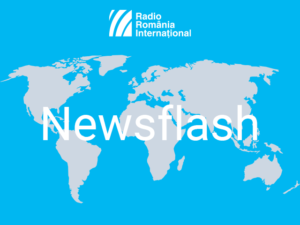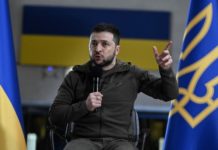A serious warning comes from the chief of the armed forces general staff.
Less than 2 weeks from now, Romania will hold the first round of its presidential election, and the campaign remains low-key, limited to predictable speeches and mutual attacks between the candidates. Analysts and commentators deplore the contenders’ almost complete disregard for major topics, such as the war in neighbouring Ukraine and the country’s preparedness for any kind of security challenges.
The military, on the other hand, are not involved in the campaign and are quite familiar with such delicate topics. Moreover, the institution they represent enjoys, unlike political parties, some of the highest public confidence rates.
A little while ago, the chief of the Armed Forces General Staff, gen. Gheorghiţă Vlad, warned about the small number of reserved troops that Romania can resort to in case of a conflict, and about loopholes that restrict the armed forces’ response capacity in certain situations. It was a useful public statement, because the authorities set out to address the problems the general mentioned.
On Tuesday, on the celebration of the Armed Forces General Staff, gen. Vlad rang an alarm bell as current security indicators suggest peace is no longer to be taken for granted on the European continent. He mentioned that, in violation of international humanitarian law, the Russian Federation’s moves fuel a negative progression of the likelihood of security risks and threats. According to the military official, a defence crisis is on-going in the Black Sea region, a region of strategic interest for NATO.
The Romanian Army, Vlad emphasised, has reconfigured its defensive architecture. Procedures have been adjusted, the military’s response capability has been recalibrated and structures have been consolidated so as to improve the permanent combat service, air police and vigilance. Early warning and situational awareness capabilities have also be strengthened.
Our defensive capacity, including Euro-Atlantic relations and the Strategic Partnership with the US, remain the vectors of our national deterrence and defence posture in the Black Sea region, and the Armed Forces General Staff plays a vital role in consolidating this posture, Vlad pointed out.
In mid-September, NATO military leaders attending the Alliance’s Military Committee conference in Prague analysed the progress in implementing the defence plans approved in the 2023 Summit. On that occasion, gen. Gheorghiță Vlad said that, considering the developments in Russia’s war against Ukraine, it is becoming increasingly evident that a substantial Allied presence is necessary in the Black Sea region and that the region’s relevance must remain a priority on the NATO agenda. Credible and efficient deterrence means earmarking forces and means and ensuring the flexibility of Battle Groups so that, if necessary, they may quickly reach brigade-level organisation, the chief of the Romanian Armed Forces General Staff insisted.
Ştefan Stoica, Radio Romania International










